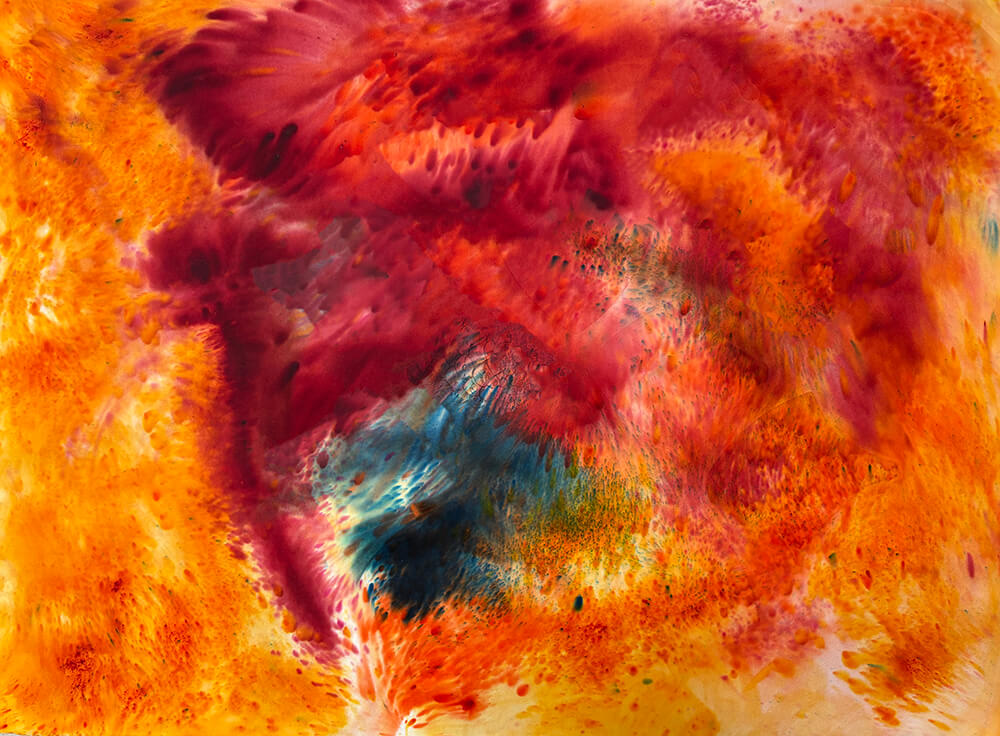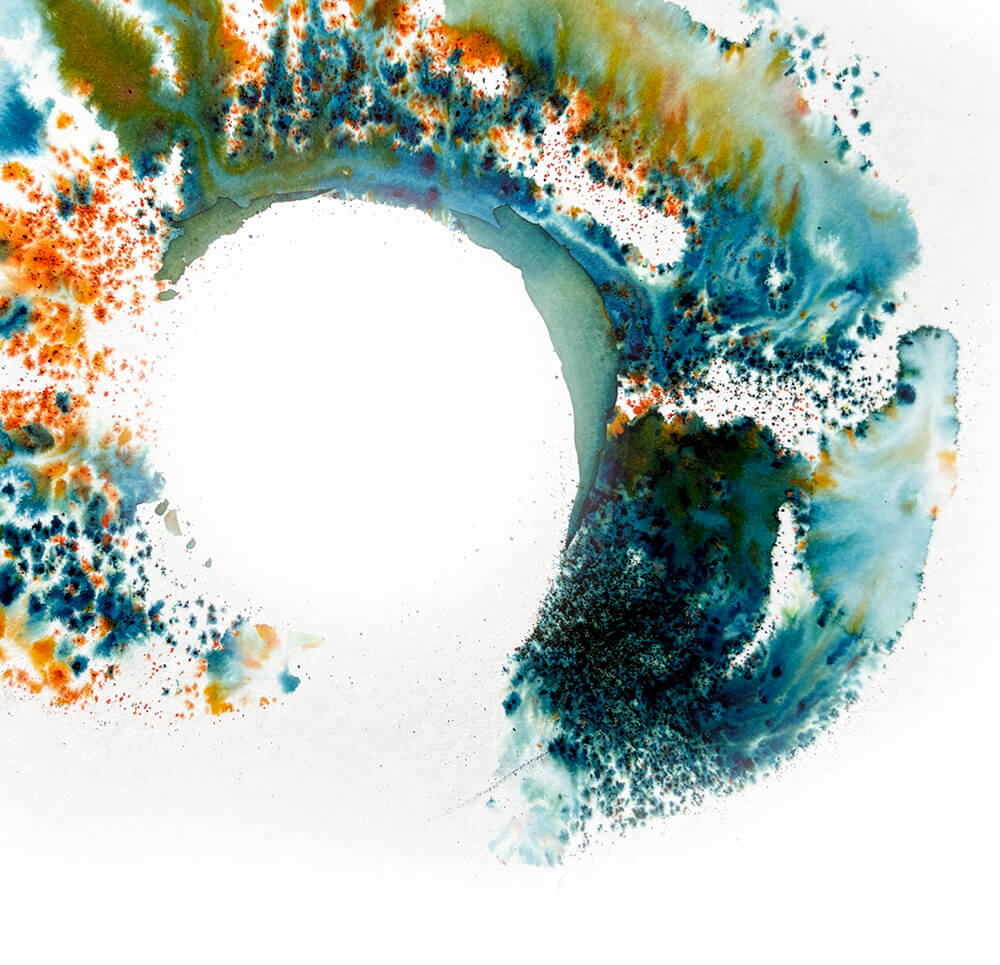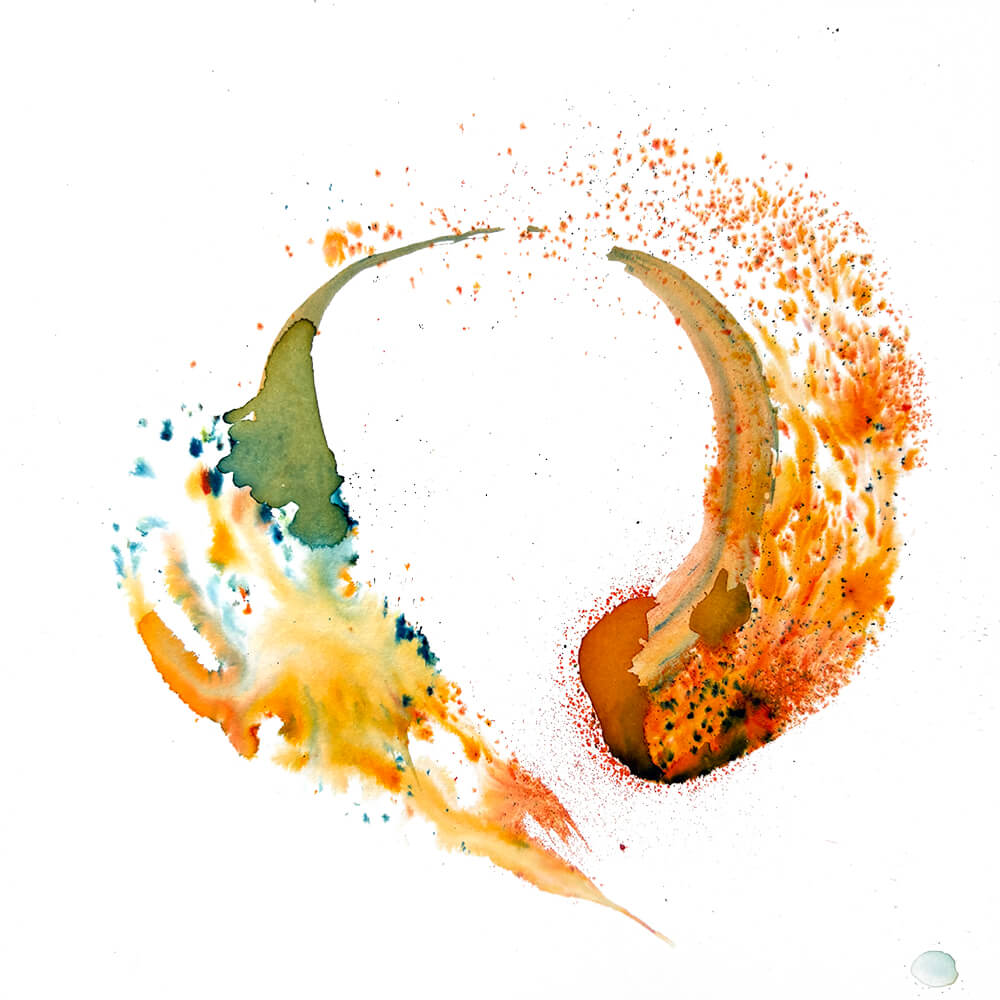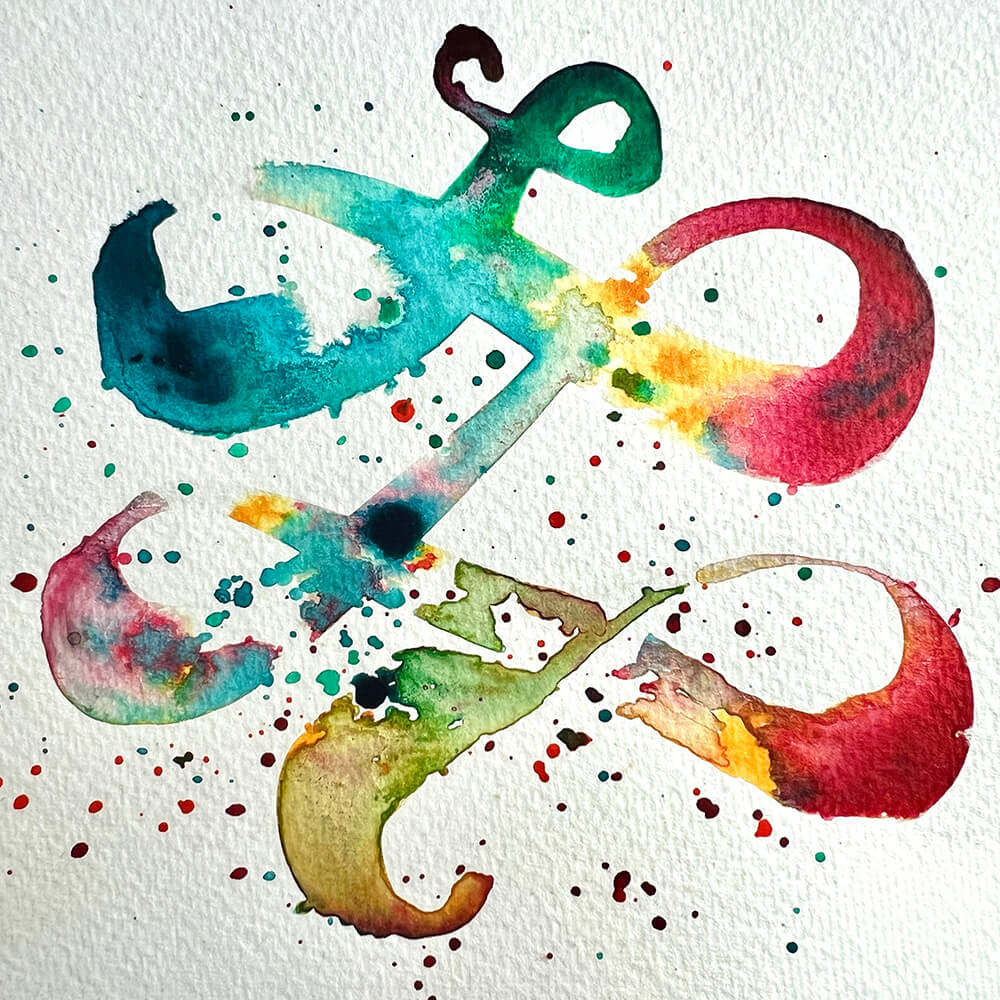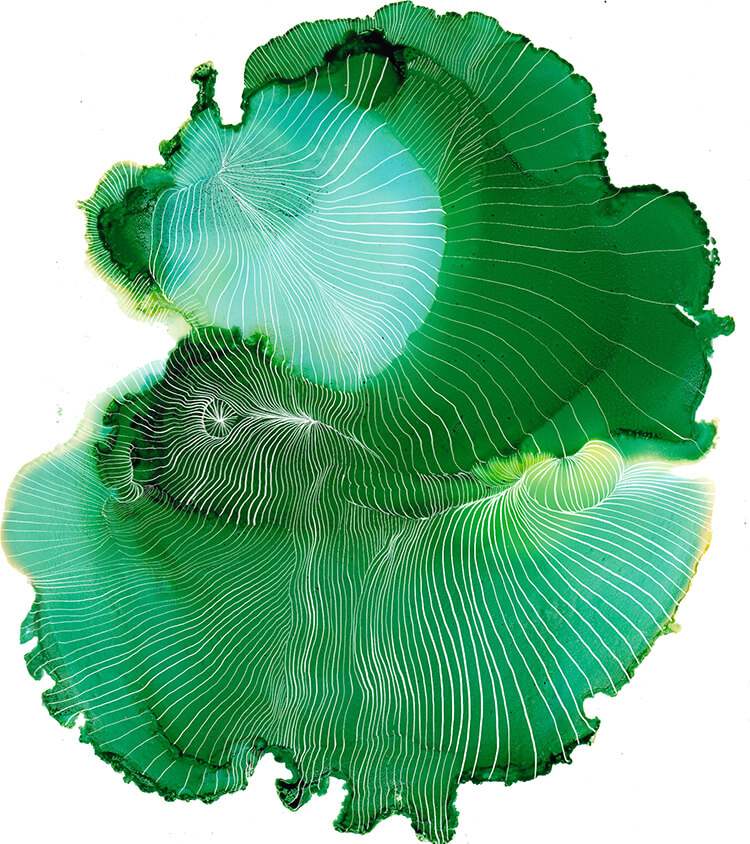A Creative Ritual for Every Lunar Cycle

O now you come in a rut,
in rank and black desire,
to beat the brush, to lash
the wind with your long hair.
Ha! I am afraid,
exceedingly afraid.
—Linda Hogan
Can’t shake the gloaming of samsara
some days
about the time caffeine peaks
& the world careens off another carbon cliff
my middle heart heads for the exit
all that orphan wants is out
Unsatisfactoriness viewed dispassionately
is probably impossible
but good people give themselves to it
breathing in dense smoke from crematorium ghats
exhaling streaming clouds of good in luminous micrograms
all in the heart-mind-body
The scenography from the documentary shows
but it does not tell
how we got here
ditto
the origin stories
though spooled in reverse
All told it’s left to you to imagine
what the navel of world looks like
on first entering through birth
I picture it sometimes in the afternoon
when I’ve already given up
& am willing to sign off on anything:
A caregiver
utterly surrounds me
like a grass mountain desert forest
wedded to sky river space ocean
it is an inclusive warm melody
consciousness of one thing
connected to all things
flowering, still, flowing
an infinity dazzlingly simple
In such moments
there is no above
below or all-around
only senses stirred
ever quite gently
outward in welcome.
(lightning, thunder)



